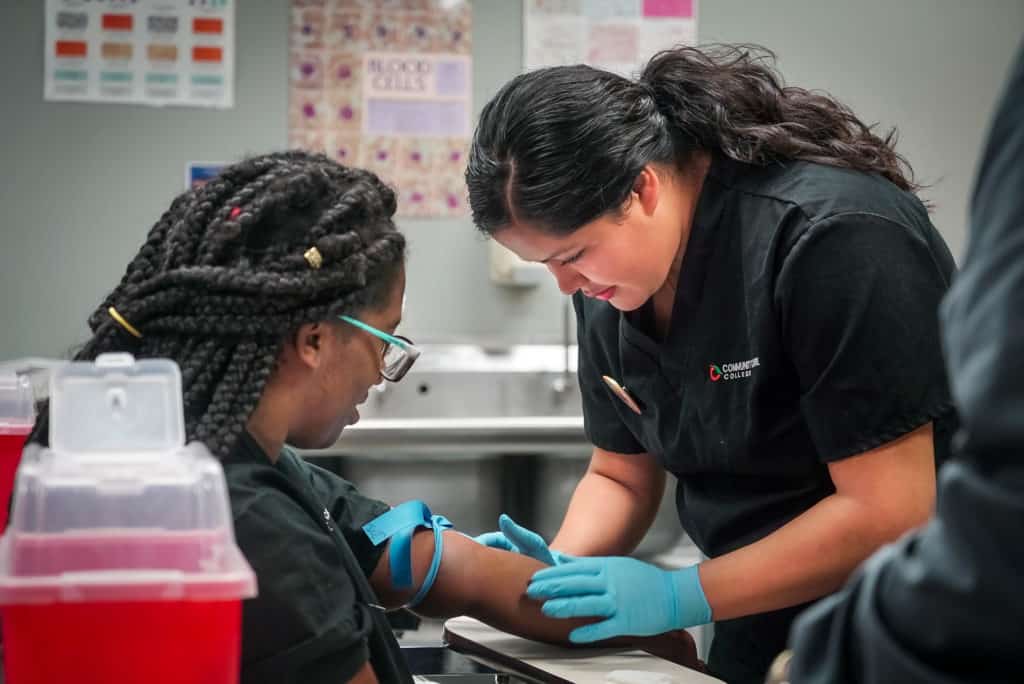MA Students to A Medical Assistant
How is the “customer service” at your doctor’s office? As a Medical Assistant instructor, it is one of my responsibilities to teach my students “customer service”, customer being the patient, and good personal skills. I hear from so many people about how they were dissatisfied with their care from either the physician, the assistants, or the front office staff.
According to the Small Business Administration, most businesses lose 67% of their customers because of poor customer service experiences.
Picture courtesy of scrubsmag.com
I tell my students “be the Medical Assistant that you or your family members would want to have”. The following list includes some of the aspects I teach my MA students that an educated and attentive MA should have.
- Explain procedures. Actually talk OUT LOUD while you are working with a patient to explain what you or the physician might be doing to you! Isn’t it helpful when you understand what is going on, why it is happening, and how it might feel during a procedure?
- Give patient education as often as you can during a patient visit. Explain how to take a temperature properly, explain how high is too high for a fever, explain what routes are most accurate, etc. This will not only educate your patients but will also reduce the amount of phone calls from patients or time on the phone explaining.
- Be timely. Don’t you hate waiting! Your patient most likely already had to wait in the reception area to be called back. If at all possible, don’t make them wait for you to take their history, give them their vaccines, change their dressing, etc. If they ask a question and you don’t know the answer, consult the physician or another co-worker and get back with them in a timely fashion.
- Focus on your patient and give them your undivided attention. Look at them in the eye, get on their level, and show respect! DO NOT be on your cell phone under any circumstances. Be thorough and answer any questions in a caring way.
- Be empathetic. Put yourself in their shoes! Be their shoulder to cry on, hold their hand, give a hug. You are there for both physical and emotional support. Be kind, caring, and considerate.
- Stay positive and uplifting! Give them a hope! Speak positively in everything you do. At the very least you may just brighten their day!
These descriptions seem basic but oh so important! If you had that MA with all of the above attributes would you be more likely to want to come back and/or tell others about that office and staff?
Jessica Curtis
I started out as a CNA on the pediatrics floor at St. John for 3 1/2 years while I attended RN school. Upon graduating, I continued on the floor and in the PICU for another 3 years as a pediatric nurse. I have also worked OB-Gyn, respiratory, and post-op. After having my son, I moved to a pediatric doctor’s office for four years, gaining triage experience. I started here at CCC over 4 years ago as a Medical Assistant instructor for Phase 2 teaching Administrative, Clinical, and Anatomy & Physiology. I am certified as an AHA BLS CPR instructor and I have also obtained my CPI and CMA certification. I absolutely love teaching! It is a completely different field but I thoroughly enjoy teaching others what I know and have experienced. In turn, I hope to help students better their own lives by, hopefully, doing something they love as well!
____________________________________________________________________
Want to learn more about maintaining or achieving health, teaching others about health and working in a career that uses this knowledge? Contact Community Care College and ask about our Medical Assistant program. We educate and prepare you to work in the fast growing professional field of Medical Assisting. After completing our program you are also qualified to sit for the American Association of Medical Assistants’ national certification exam to become a CMA (AAMA), which is recognized in all fifty states!









